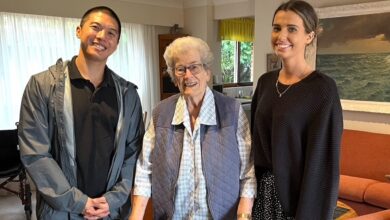New look, same rules

The cosmetic industry may put a new face on care, but under the surface the same rules and professional obligations apply.
An increasing number of nurses are being attracted to employment within the cosmetic and anti-ageing industries. Two tasks they often undertake in association with this are handling drugs and injecting patients. Complications can arise from the nature of commercial arrangements surrounding nurses providing such services and (perhaps) their own perceptions that they are primarily providing skin specialist services or cosmetic therapies, as opposed to nursing services.
A recent NSW nurse’s disciplinary hearing highlights a number of interesting issues in this area. The factual background was that from 2009 the nurse had entered into an arrangement with a specialist plastic surgeon to obtain injectable cosmetic medications; he provided them to the nurse and she injected them at the surgeon’s practice. The nurse reimbursed the surgeon for the cost of the medications with a sizeable share of the fee she received from the patients. Additionally, the nurse transported the drugs to another day spa’s premises and supplied and administered the medications to clients of this business.
The medications included Botox and restricted substances within Schedule 4 (S4) of the Poisons Act, which is to protect the health and welfare of the community. The schedule included hyaluronic acid and its polymers in preparations for injection or implantation for tissue augmentation or cosmetic use. An S4 drug may be supplied only on the recent prescription of a medical practitioner and its control, storage and dispensing are limited to medical practitioners and pharmacists. A medical practitioner may supply an S4 drug to a nurse to administer only if the patient is under the direct care of the medical practitioner and a specific patient authorisation for administration of the drug has been given to the nurse. A medical practitioner may not supply an S4 drug to a nurse for administration to a patient who is not under the direct care of that medical practitioner and without a written authorisation to administer the substance to that specific patient.
A protocol between the Australasian Society of Cosmetic Medicine, the Australian Nurses Federation and the Pharmaceutical Services Branch, NSW Department of Health, states that any patient receiving an S4 drug should initially be assessed by a medical practitioner, so that a clinical history and record of the patient’s medications and allergies can be noted. The management plan must include a discussion of potential side effects or any complications of the drugs. Once the plan has been determined, the nurse may administer the drugs according to the medical practitioner’s recent instructions. The medical practitioner should be immediately contactable to deal with any problems. Most tellingly, the protocol states that medical practitioners who supply S4 drugs to nurses but have no input into the clinical management of the patient, or no physical presence on the premises at which the drugs are injected, contravene the law and may be prosecuted. Further, nurses who store, prescribe and dispense S4 drugs medical practitioners purchase for them not only contravene the Poisons Act but are engaging in conduct outside their nursing scope of competency and practice.
There is no question that suitably trained RNs can administer S4 medicines for cosmetic purposes after a medical practitioner has consulted the patient and formulated a written treatment plan stating which medications are to be used and the maximum number of procedures and doses. The hearing determined that what was not acceptable was for a medical practitioner to on-sell S4 medications to nurses for them to administer. In this case, the nurse supplied and administered the medications obtained from the surgeon at the day spa and supplied and administered S4 medications at the surgeon’s practice without his or any other medical practitioner’s involvement in the consultations.
The evidence was that she would obtain a blank medication order form and a consent form prior to seeing every new patient at the surgery. After seeing a patient, the nurse would notate the form for the cosmetic medication(s) to be used and the surgery would supply them. She would then administer the medication(s) and write up her medical and treatment notes. The surgeon “did not sign the order form prior to, but would sometimes sign the document later that day or soon after”. The surgeon would usually not see the Botox or dermal filler patients unless they required surgery or if the treatment was beyond the scope of the injections. Only occasionally did the nurse ask him “something about” the patients she saw. Finally, the surgeon advised that he had no knowledge of the nurse’s “arrangements in other practices”.
The tribunal voiced some significant sympathy for the nurse, given the opportunities the surgeon provided her. It was highly critical of his acquisition and supply of the S4 medication. There was said to be no doubt that he provided the means for her to engage in the conduct found to be unsatisfactory and professional misconduct. However, this did not detract from the nurse’s responsibility to ensure she was complying with the law and with the terms of her registration to practice.
The lesson is, irrespective of any commercial arrangement or description – cosmetic surgery, day spa, rejuvenation clinic, health or rejuvenation services – if nurses are providing these services using S4 medications, they are obliged at all times to conduct their actions in accordance with their professional and legal responsibilities. There is no opting out; branding or couching such services within the cosmetics industry does not abrogate the professional responsibilities of practising as a nurse.
Email: [email protected]





